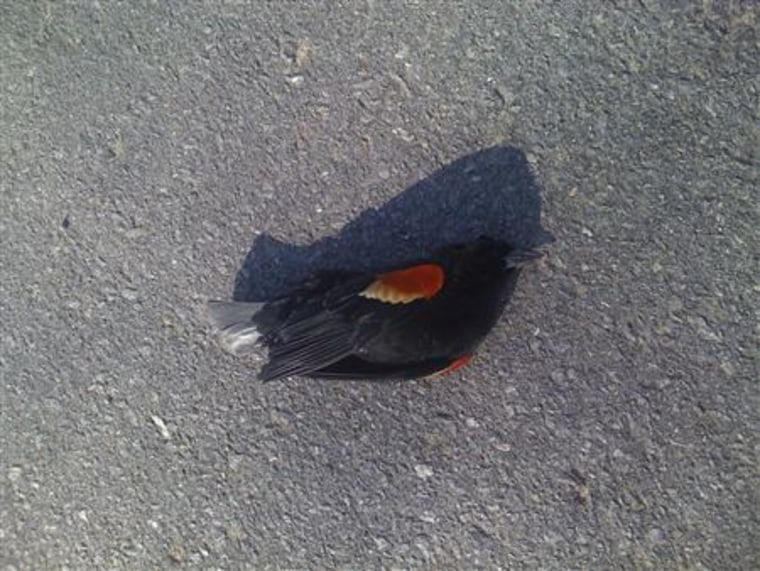Birds falling out of the sky in the United States and Sweden are freak examples of the kind of mass animal deaths, from beached whales to deluges of frogs, that have unusual but not apocalyptic causes, experts say.
Storms, hail or lightning can kill birds while tornadoes or waterspouts may suck up small fish or frogs and drop them far away. Human causes, such as fireworks, power lines or a collision with a truck, may explain avian deaths.
The U.N. Environment Program (UNEP) urged more research into baffling deaths — ranging from why whales sometimes make the fatal mistake of swimming onto beaches to recent bird deaths, dubbed the "Aflockalypse" by one newspaper.
"Science is struggling to explain these things. These are examples of the surprises that nature can still bring," said Nick Nuttall, spokesman of Nairobi-based UNEP. "More research is needed."
Modern threats such as pollution or climate change may be adding to background stresses on wildlife.
About 500 dead birds were discovered in Louisiana this week and 5,000 in Arkansas at New Year, many of them red-winged blackbirds. Swedish authorities have been investigating the deaths of 100 jackdaws found in a street in Falkoping.
"We made an autopsy on five of the birds yesterday and found internal bleeding but no external lesions," said Marianne Elvander of Sweden's National Veterinary Institute.
'Freak events coinciding'
She said there was no sign that they had died from diseases such as bird flu — the main worry in such cases. Among the theories was that a truck had collided with the flock.
In Beebe, Arkansas, one theory is that fireworks spooked the birds to fly into buildings or other objects. Such birds roost in vast numbers, fly fast and have poor night eyesight, Nuttall said.
The widely publicized deaths meant other incidents received far more attention than they otherwise would have. "This is a classic example of freak events coinciding," said Petter Boeckman, a zoologist at the Norwegian Natural History Museum.
He said mass deaths of birds were not unheard of, but they normally happened unnoticed at sea or in rural areas away from towns. Many birds are weak and die in winter when food is scarce.
In one infamous example, 60,000 ducks died in the Baltic Sea in 1976 after they landed on a small oil slick, fatally mistaking it for an attractive patch of calm water.
Storms that suck up small creatures have been linked to reports of small perch fish falling out of the sky in Australia in 2010 far from open water and to a hail of frogs in northwestern Serbia in 2005. Lemmings often die en masse when food runs short.
Whale beachings might be caused by factors such as illness, or disorientation caused by extra noise in the oceans, from shipping or oil and gas drilling.
Boeckman said the response to the bird deaths also illustrated differences between more religious-minded Americans, versed in Biblical accounts of plagues of frogs or locusts, and secular Swedes who place their trust in human authority.
"In the United States the reaction is 'oh no, Doomsday is coming'. In Sweden, they say 'let's call the veterinary authorities'," he said.
